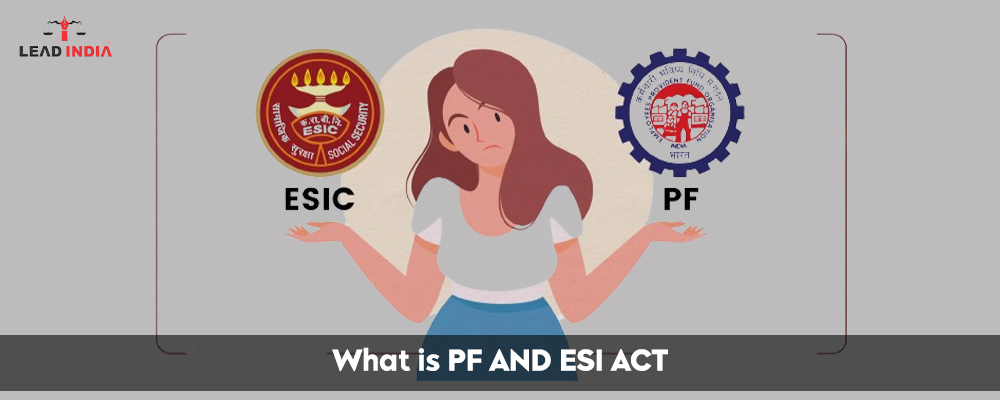In a provident fund system, a percentage of the employee’s monthly salary is withdrawn and donated to the fund, along with a matching contribution from the employer. The money is subsequently invested in a variety of financial products, including stocks, bonds, and other assets, to create profits. When an employee retires or leaves employment, the accrued funds, including investment returns, are paid out to them. The amount contributed to the PF is typically a fixed percentage of the employee’s pay, and the contributions are tax deductible up to a specified level, which varies by country.
Employees Provident Fund was founded in 1952, hence, the act is called the Employees Provident Fund & Miscellaneous Provisions Act, 1952, which extends to the whole of India.
Need A Legal Advice
The internet is not a lawyer and neither are you. Talk to a real lawyer about your legal issue

Applicability of the act
- This applies to all factories employing 20 or more people in industries listed in Schedule 1.
- Every other establishment employing 20 or more people, or a class of such establishments that the Central Government may notify;
- Any other establishment so notified by the Central Government, even if it employs fewer than 20 people.
Taxability of PF
Deductions for PF can be claimed under Section 80C of income tax when calculating income tax, and when an employee withdraws PF and interest after retirement, the PF and interest amounts are not taxable. If an employee is unemployed for more than two months, he may accumulate and withdraw Pf funds. 75% of the PF can be withdrawn after one month of employment, while the remaining 25% can be taken after two months of unemployment. After withdrawing 75% of the sum, the employee can choose whether to keep the PF account or withdraw the entire amount.
What is ESI
Employees’ State Insurance Corporation (ESIC) is a government body that oversees the Employees’ State Insurance (ESI) program. The system primarily provides medical and financial help to employees and their dependents. The support is offered when an employee is unable to perform his duties due to illness, workplace injury, or maternity leave.
The Employees’ State Insurance Act of 1948 established ESI as a social security plan administered by the Government of India. Employees are protected under the system against disability or death as a result of workplace injury, sickness, or maternity. Employees must join the scheme to receive medical treatment and other perks. The scheme’s financial aid may compensate employees for salary loss owing to health issues.
Both employees and employers make regular monthly contributions to the scheme based on a proportion of their wages in this self-financing program.
Where does it apply?
ESI applies to any entity that employs ten or more people, including stores, hotels, and restaurants that are not involved in production, cinemas, road vehicle transport establishments, newspaper establishments, and private educational and medical institutions.
The minimum number of employees necessary to enroll in the ESI plan varies by state, including Maharashtra, Meghalaya, Mizoram, Nagaland, Goa, Chandigarh, and Assam (20); Jharkhand, Haryana, Karnataka, Rajasthan, Tripura, West Bengal, Andhra Pradesh, and Delhi (10).
Wage limit
Employees earning a monthly salary of up to Rs.21,000 are eligible for the scheme’s benefits. Employees who work for factories/establishments with 10 or more employees and earn up to Rs. 21,000 per month are eligible for health benefits under the ESI Act.
Exemptions to the provision apply to the daily average salary of Rs.137. They are not required to contribute to the system through their wages. Such individuals receive only the employer’s contribution.
Lead India offers various legal services, such as free legal advice and internet information. We provide a facility in which you can talk to a lawyer and ask legal questions regarding the law here. Lead India’s lawyers can assist you with any legal issues. In India, Lead India provides free legal assistance online. In addition to receiving free legal advice online, Lead India allows users to pose inquiries to experts for free.





 Talk to a Lawyer
Talk to a Lawyer